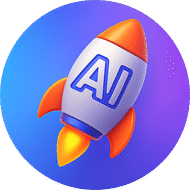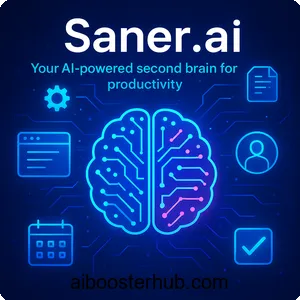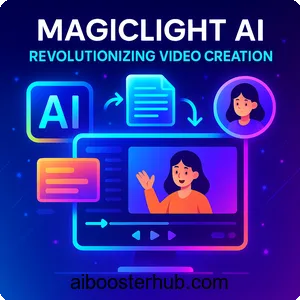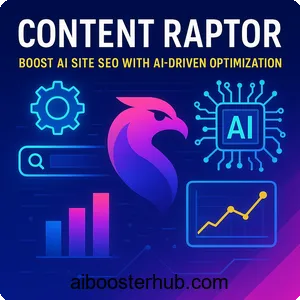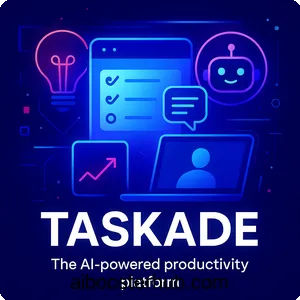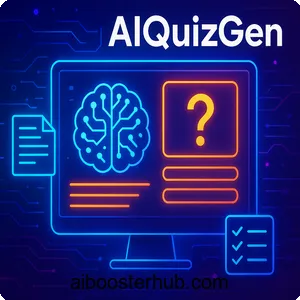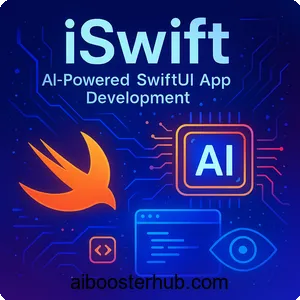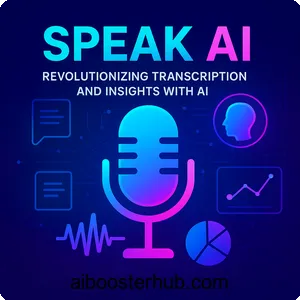Boost Database Management with SQLAI: AI-Powered Innovation
In the rapidly evolving world of artificial intelligence, tools that simplify complex tasks like SQL query management are transforming how businesses and individuals interact with data. This article dives into SQLAI, a cutting-edge AI-powered platform designed to streamline SQL and NoSQL query generation, optimization, and analysis.
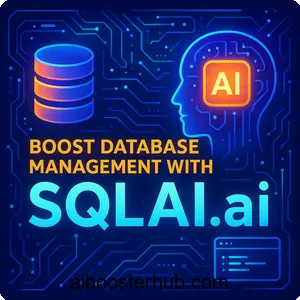
Content
Toggle1. Introduction to SQLAI
What is SQLAI?
SQLAI is an innovative AI-powered platform that simplifies the creation, optimization, and management of SQL and NoSQL queries. Designed to cater to a wide range of users—from beginners learning the ropes of database management to seasoned professionals seeking efficiency—SQLAI leverages advanced artificial intelligence, including models like GPT-4, to transform natural language inputs into precise, executable queries. By eliminating the need for deep SQL expertise, it democratizes access to database management, making it an essential tool for developers, data analysts, and business owners alike. The platform supports popular databases like MySQL, PostgreSQL, Oracle, SQL Server, and MongoDB, ensuring broad compatibility for diverse use cases.
Why AI-powered SQL tools matter
In today’s data-driven world, businesses rely heavily on databases to store, retrieve, and analyze information. However, crafting efficient SQL queries can be time-consuming and error-prone, especially for those without extensive technical training. AI-powered tools like SQLAI bridge this gap by automating complex processes, reducing errors, and accelerating workflows. By integrating AI, SQLAI not only generates queries but also optimizes them for performance, explains their functionality, and even troubleshoots errors, making it a versatile solution for modern data challenges.
2. Key features of SQLAI
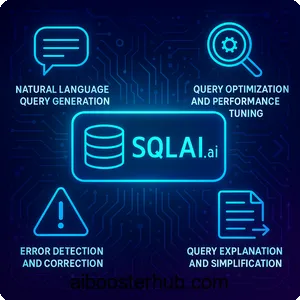
Natural language query generation
One of SQLAI’s standout features is its ability to convert natural language instructions into accurate SQL or NoSQL queries. Users can describe their data needs in plain English—or any other language—and the platform’s AI will generate a corresponding query in seconds. For example, a user might input, “Show me all customers who made purchases last month,” and SQLAI will produce a precise query tailored to the database schema. This feature is particularly valuable for non-technical users, such as business analysts or small business owners, who need quick data insights without mastering SQL syntax.
Query optimization and performance tuning
SQLAI goes beyond query generation by offering step-by-step optimization suggestions. Its AI analyzes queries to identify inefficiencies, such as redundant joins or resource-heavy clauses, and recommends improvements to enhance performance. For instance, it might suggest indexing strategies or rewriting queries to minimize database load. This ensures faster execution and reduced resource consumption, which is critical for large-scale databases or high-traffic applications. The platform’s optimization tools are accessible to both beginners and experts, providing actionable insights to improve database efficiency.
Error detection and correction
Writing error-free SQL queries can be challenging, even for experienced developers. SQLAI’s error detection feature scans queries for syntax issues, logical errors, or inefficiencies, offering detailed explanations and corrective suggestions. For example, if a query fails to account for missing rows in a related table, SQLAI will highlight the issue and propose a fix, such as incorporating a LEFT JOIN. This not only saves time but also serves as an educational tool, helping users understand and avoid common pitfalls.
Query explanation and simplification
Understanding complex SQL queries is often as challenging as writing them. SQLAI provides detailed, plain-English explanations of what a query does, breaking down each clause and its purpose. Additionally, it can simplify queries by removing redundant patterns or unnecessary complexity, making them easier to read and maintain. This feature is particularly useful for teams collaborating on database projects, as it ensures clarity and consistency across query development.
Database connectivity and real-time analytics
SQLAI allows users to connect directly to their databases, acting as a secure proxy to execute AI-generated queries in real time. This capability enables immediate data retrieval and analysis, eliminating the need to switch between tools. The platform supports schema imports, ensuring queries are tailored to the specific structure of the user’s database. For organizations handling large datasets, this feature streamlines workflows and provides instant insights for data-driven decision-making.
Support for multiple databases and languages
SQLAI’s versatility extends to its support for a wide range of databases, including relational systems like MySQL and PostgreSQL, as well as NoSQL databases like MongoDB. It also accommodates queries in multiple languages, allowing users to input instructions in their native tongue. This multilingual support enhances accessibility, making SQLAI a global solution for diverse teams and industries.
3. Benefits of using SQLAI
Enhanced productivity for all skill levels
SQLAI’s intuitive interface and AI-driven features save time for both beginners and experts. Novices can generate complex queries without learning SQL syntax, while professionals can automate repetitive tasks and focus on strategic analysis. By reducing the time spent on query creation and debugging, SQLAI boosts productivity across teams, allowing businesses to allocate resources more effectively.
Cost-effective database management
For small businesses and startups, hiring a full-time database administrator can be cost-prohibitive. SQLAI offers an affordable alternative, enabling users to manage databases without specialized expertise. Its automation capabilities reduce the need for manual intervention, lowering operational costs while maintaining high performance. As noted by users, this makes SQLAI a game-changer for organizations scaling their data operations without increasing budgets.
Improved collaboration and knowledge sharing
SQLAI supports collaborative features, such as saving and sharing SQL snippets, which foster teamwork among developers, analysts, and business users. Teams can store query templates, share optimized code, and even use the platform’s explanations to train less experienced members. This collaborative environment enhances knowledge sharing and ensures consistency in database management practices.
Accelerated learning for SQL beginners
For those new to SQL, SQLAI serves as an educational tool. Its query explanations, interactive tutorials, and real-time feedback help users understand database concepts and improve their skills. By providing practice problems and personalized examples, the platform creates an engaging learning experience, making it ideal for students, data enthusiasts, and professionals transitioning into data-centric roles.
Secure and reliable data handling
Data security is a top priority for SQLAI. The platform uses industry-standard encryption to protect connection credentials, which are stored on separate, secure servers and can be deleted at any time. This ensures that sensitive data remains safe, giving users confidence in integrating SQLAI with their production databases.
4. Practical use cases for SQLAI
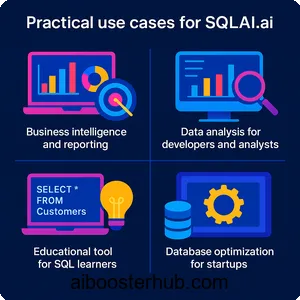
Business intelligence and reporting
SQLAI empowers business users to generate reports and uncover insights without relying on data teams. For example, a marketing manager could use natural language to query customer purchase patterns, creating reports to inform campaign strategies. The platform’s ability to generate and execute queries in real time makes it ideal for dynamic business intelligence needs, from sales tracking to customer segmentation.
Data analysis for developers and analysts
Developers and data analysts can leverage SQLAI to streamline complex data analysis tasks. Whether it’s identifying trends, detecting anomalies, or optimizing database performance, the platform’s AI-driven tools simplify the process. For instance, an analyst could use SQLAI to generate a query that identifies products needing restocking based on sales velocity, as demonstrated in example queries provided by the platform.
Educational tool for SQL learners
SQLAI’s interactive learning modules and query explanations make it a valuable resource for students and professionals learning SQL. By providing step-by-step guidance and real-time feedback, the platform helps users grasp concepts like joins, aggregations, and indexing. Its support for sample databases, such as the Sakila video rental store schema, allows learners to practice with realistic datasets.
Database optimization for startups
Startups often operate with limited resources, making efficient database management critical. SQLAI’s optimization and error-fixing tools help startups maintain high-performing databases without hiring specialized staff. For example, a startup could use SQLAI to refine queries for a customer relationship management system, ensuring fast response times and scalability.
5. How to use SQLAI: A step-by-step guide
Getting started with SQLAI
To begin using SQLAI, visit the platform’s website and sign up for an account. The registration process is straightforward: provide an email address, create a password, agree to the terms of service, and verify your email via a confirmation link. Once registered, users can access the platform’s dashboard, which offers an intuitive interface for query generation, optimization, and analysis.
Connecting to your database
SQLAI supports direct database connections for real-time query execution. To connect, navigate to the data source integration section and input your database credentials. The platform acts as a secure proxy, encrypting credentials and ensuring safe data handling. Users can also import database schemas manually to tailor queries to their specific structure, which is particularly useful for complex databases with hundreds of tables.
Generating queries with natural language
To create a query, simply enter a natural language description of your data needs in the query input field. For example, typing “List all employees with salaries above $50,000” will prompt SQLAI to generate a corresponding SQL query. The platform will display the query, along with an explanation of its components, allowing users to review and refine it if needed.
Optimizing and troubleshooting queries
Once a query is generated, users can use SQLAI’s optimization tools to improve its performance. The platform will analyze the query and suggest enhancements, such as adding indexes or simplifying clauses. If errors are detected, SQLAI provides detailed fixes and explanations, ensuring users understand the corrections. This iterative process helps refine queries for maximum efficiency.
Exploring advanced features
SQLAI offers additional tools, such as query formatting for readability, test data generation, and database index recommendations. Users can explore these features through the platform’s documentation or interactive tutorials. For teams, the ability to save and share queries enhances collaboration, while the public API allows developers to integrate SQLAI into custom applications.
6. Why SQLAI stands out in the AI tool landscape
A comprehensive solution for modern data needs
Unlike traditional SQL tools that require manual coding, SQLAI combines AI automation with user-friendly features to address a wide range of database tasks. Its ability to generate, optimize, explain, and execute queries makes it a one-stop solution for data management, saving time and reducing complexity. The platform’s support for both SQL and NoSQL databases further enhances its versatility, catering to diverse industries and use cases.
Empowering non-technical users
By allowing natural language inputs and providing clear explanations, SQLAI removes barriers for non-technical users. This democratization of SQL empowers business owners, marketers, and analysts to interact with data directly, reducing dependency on technical teams and accelerating decision-making.
Future-proofing with AI advancements
SQLAI is built on cutting-edge AI models, ensuring it stays at the forefront of technological advancements. As AI continues to evolve, the platform is well-positioned to incorporate new capabilities, such as enhanced schema understanding or advanced analytics, making it a future-proof investment for users.
Trusted by a global community
With over 100,000 professionals worldwide relying on SQLAI, the platform has earned a reputation for reliability and effectiveness. User testimonials highlight its ease of use, time-saving features, and educational value, making it a trusted choice for startups, enterprises, and individual learners alike.
7. Conclusion
SQLAI is revolutionizing the way we interact with databases, blending the power of AI with the precision of SQL and NoSQL query management. Its robust features—natural language query generation, optimization, error correction, and real-time analytics—make it an indispensable tool for developers, analysts, and business users. Whether you’re a beginner learning SQL or a professional optimizing complex databases, SQLAI offers a seamless, efficient, and secure solution. By simplifying data workflows and empowering users of all skill levels, SQLAI is paving the way for a smarter, more accessible approach to database management. Explore SQLAI today and unlock the full potential of your data.
